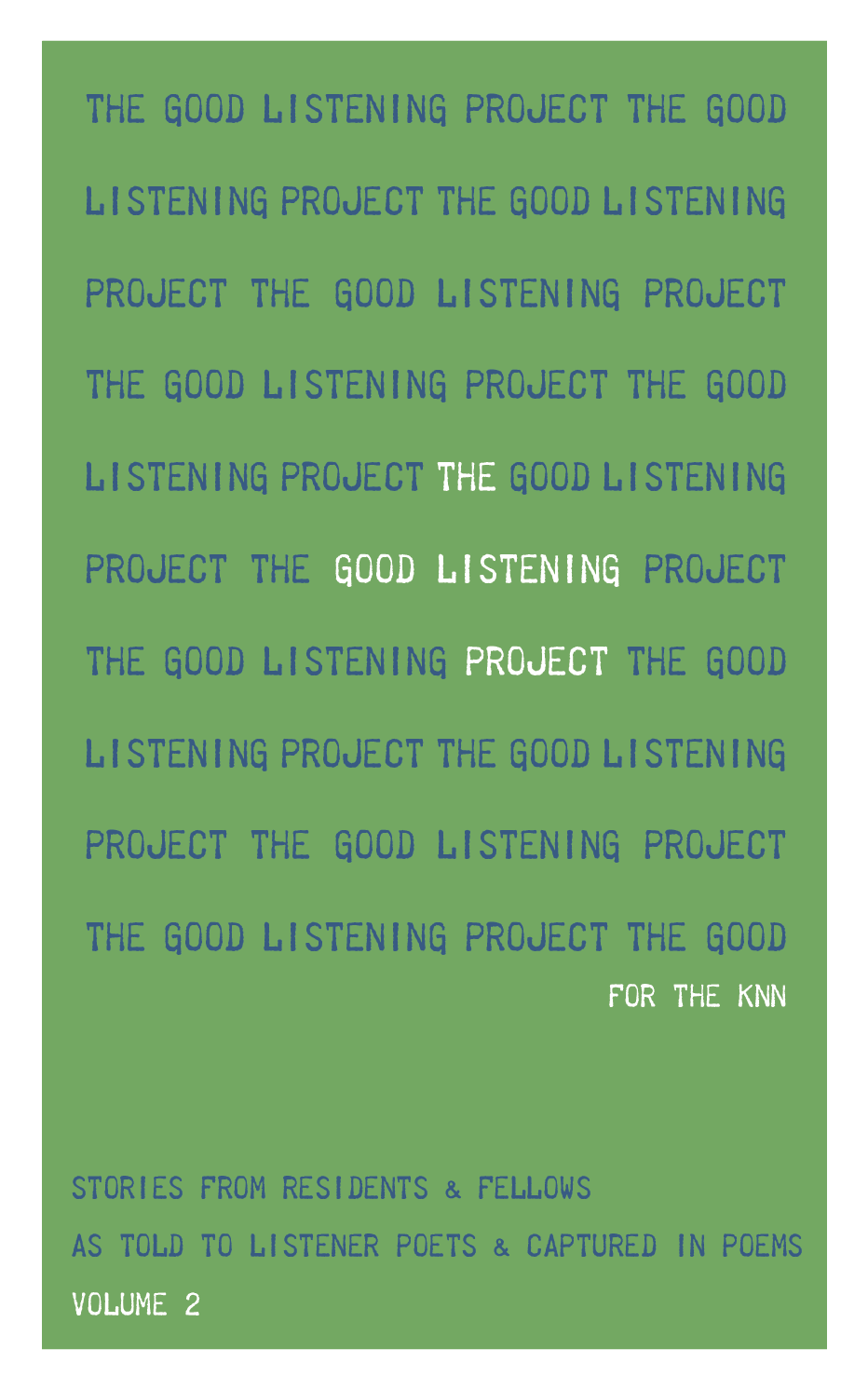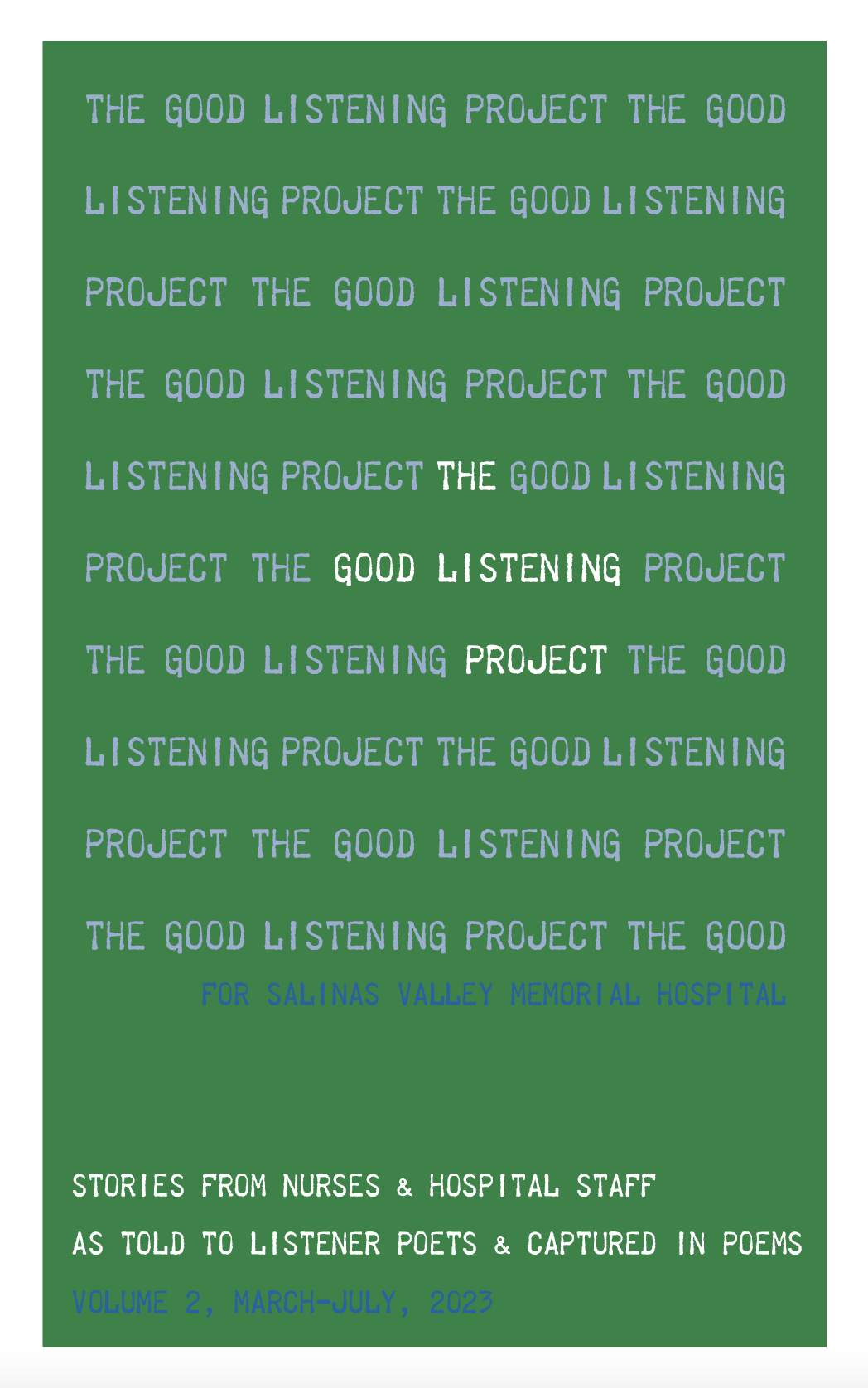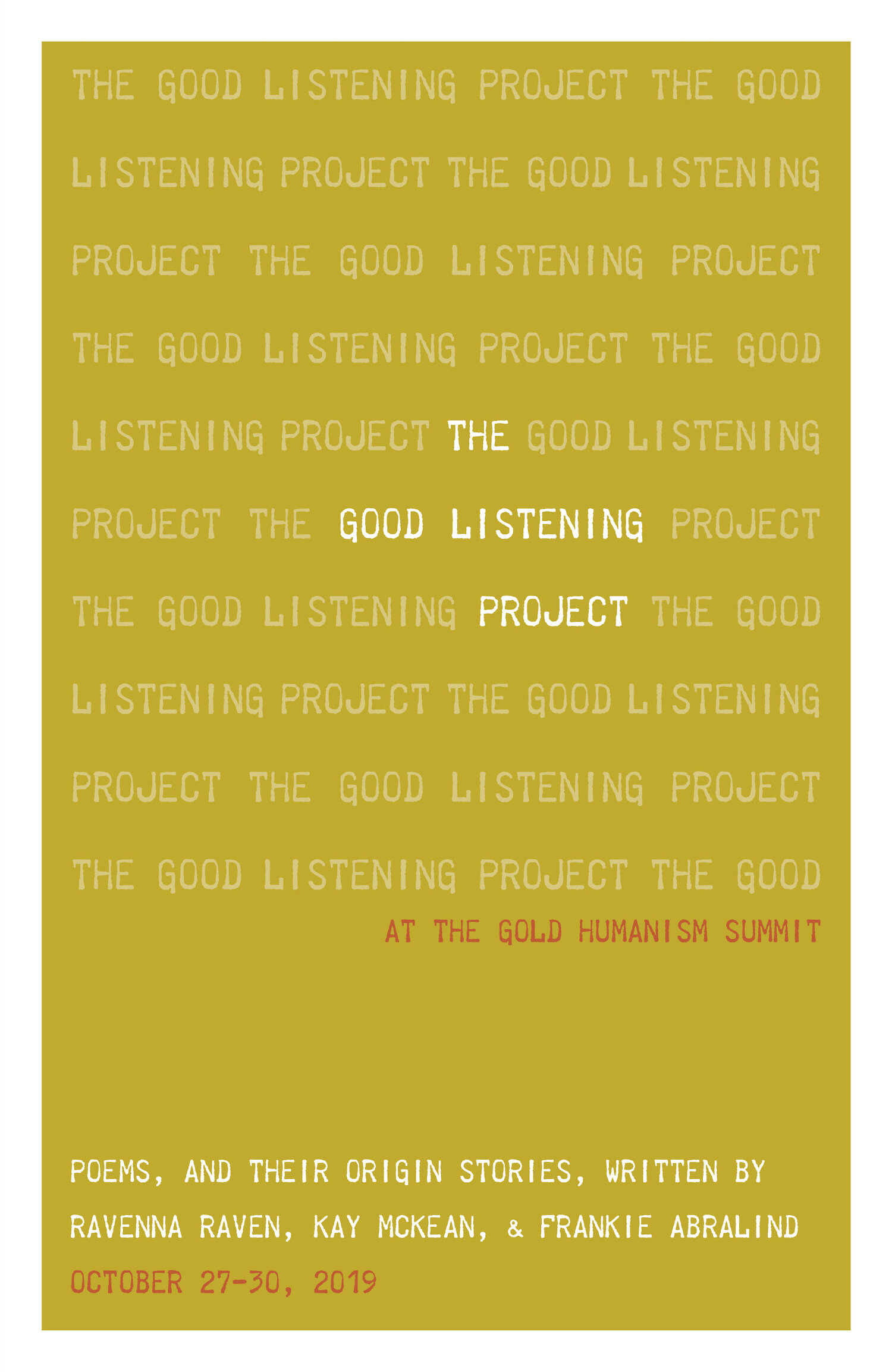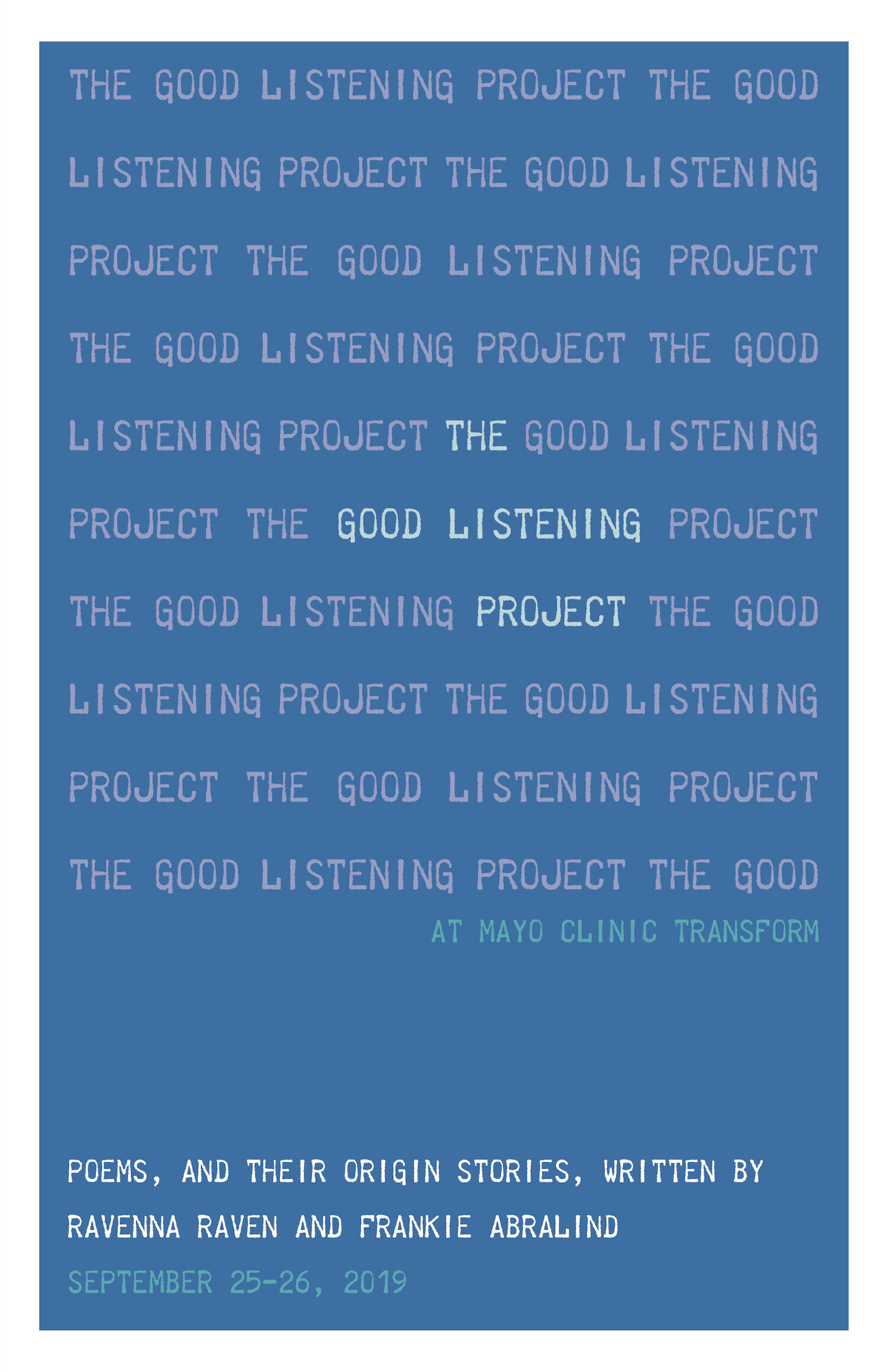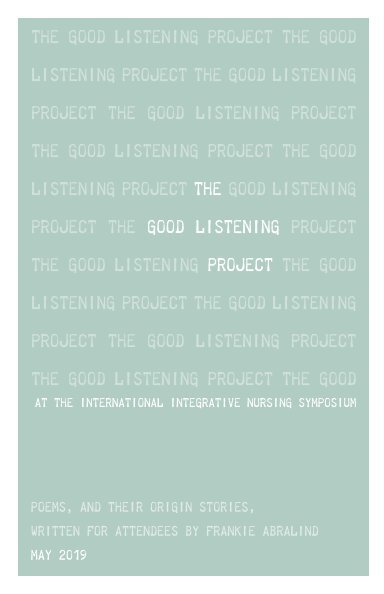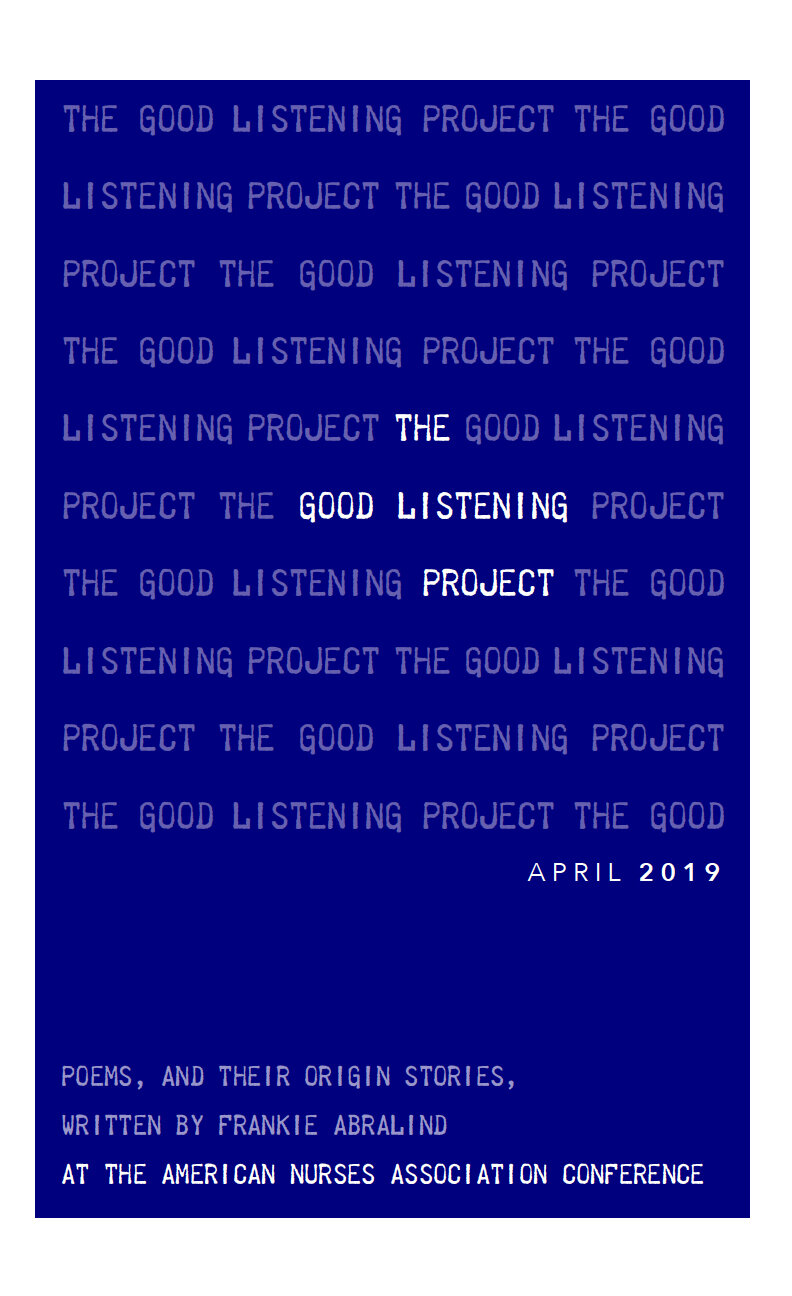Listen to this poem here:
Origin Story
After a history of crippling endometriosis, this woman had an arduous, ongoing struggle with her healthcare community for the right to have a hysterectomy. She was finally granted approval at the age of 29. “It had been like pulling teeth, but finally I felt free,” she told me. However, closing the door on one health journey ushered in other serious conditions – primarily the onset of early menopause and later osteoporosis, which was a byproduct of menopause.
As a milestone birthday fast approaches, and having recently discovered a compression fracture in one of her vertebrae along with a general decrease in bone density, she finds herself reflecting on advocacy in women's healthcare. What should it look like, particularly as women age? She shared: “I feel like I'm in some sort of race – where no one is on the sidelines cheering me on… there’s always that ticking time bomb. The thought that one of these days I could have real problems with this condition (osteoporosis) that no one seems too concerned about – or concerned about treating – that scares me.”
With a lengthy former career in healthcare herself, first as a pediatric nurse and then as a social worker, she said: “I've always had these high-intensity caring positions – but I’ve never really turned attention to myself.” She went on: “Society wants us to have babies but then doesn’t help us take care of our maternal health. Society really doesn't value women, especially in menopause. We are forgotten, neglected, discarded.”
Sibihan Lawrence, Listener Poet
Listener Poet Session
May 2025
In The Middle Way
By Sibihan Lawrence, Listener Poet
They say—
Hands that help,
Are holier than lips that pray
So as the persistent ceremonious roar of
The Crimson Tide
Crashes against the altar of uterine walls
As the comfortable chaos,
Of my Genius body
Contorts, cramps, sheds and redefines
While hormones dance,
rigorously resisting the heavy strain
Of circadian rhythm
(Im) balancing on endogenous landmines
I,
I am a ticking time bomb
Caught in the maelstrom of medical male-dom
Where they treat symptoms
and not the cause
And we give a round of applause
for systems that are flawed
And endorse the idiocy of corporatization
The passage of time teases and taunts my brittle bones
And I don’t yet possess the language to describe
what these bones know
So I’ll need you to speak up for me now.
But I watch my crumpled reflection
in their languid eyes
I see it—
They’ll expect me to pain silently,
Expect me to
Mask my matriarchal wounds
and heal privately
Surrender my famished femininity
Become discarded deity
I see it,
I see it in their furtive looks
and averted gaze
They'll want me to shrink myself…
Shrink myself into a corner
Fold myself up until I erase
Put up
Shut up
Don’t make a fuss
So I’ll scream into the void
Then go quietly
Quietly…
into the Middle way…
I am fugitive
Chasing womanhood through unfamiliar streets—
and it’s dark down there.
I am two-headed beast
Swaddled in drenched sheets and defeat.
I am She
Of drained reservoir and Icarus skin
She of Misplaced Guilt
and Soliloquies of Shame
My Dreamscapes are now Requiem
For the unknowingly squandered
Whimsy of youth
I am Afterthought
A Casual casualty
I am Stigma
I am Scapegoat
I am Underdog
Standing at the foot of
Mother Nature’s mountain
Without a harness
So Who
Who then watches the Watch Woman?
If this bough breaks, who will tend to my branches?
And if this bough breaks
who will rake my fallen leaves?
And if the fog descends, who will make a clearing?
Who will help calm the storm in me?
As I hasten towards my Second Spring
I’ve learned that Hope is sometimes a Rebellious companion
And that it is always darkest—
just before the Dawn.
This poemee wanted to leave a legacy of doing good in this world. Although at times she becomes discouraged about the inequalities in the world, she is determined to do her part by making sure everyone has access to quality healthcare.
This person radiated gratitude and hope. She shared that she discovered she was expecting a son just before receiving a lung cancer diagnosis at the age of 31. Despite the challenges, she expressed profound gratitude for living in a human body and reflected on her transformative journey of self-discovery.
She had an epiphany as a child — that love could heal the world. Now, as a seasoned physician, there’s still a part of her that believes in the power of love, but not with the same idealism she once held.
This person is a neurologist of Romanian descent, in practice in the U.S. for 19 years, who draws inspiration from writers in his heritage. In his writing and work, he seeks to create a safe harbor for humanness while navigating the labyrinths of medicine to reach the essence of the humanity of his patients – even if all they want is a diagnosis or cure.
This poemee wanted to share her experience as a surgical resident, offering insight into the traditions that define this unique culture: the relentless pressure to succeed, the deference to those in higher positions, and the often-cold interactions that accompany a field-wide drive for speed and efficiency.
This new physician was looking forward to starting her OB/GYN residency. Her original goal in undergraduate school was physician assistant studies. But a series of experiences led her to consider a different path: medical school.
“I was at a birth recently and thought: This is why they are so afraid of us. They can’t control this” She sat on her couch with a mug of coffee. She is a queer, femme, mother of two who has worked in reproductive health for over two decades, first in abortion care and now as a doula for all, including queer and non-binary families, through the pregnancy spectrum. She has personally experienced birth, miscarriage, hysterectomy and surgical menopause.
A teenage cancer survivor, this poemee shared how she learned from the younger children she witnessed undergoing the same treatment she was. “You just see a difference in the way a child approaches it,” she said. “They have the moment, they have the pain, they have the shot, and then they just go back to playing. I always took strength from the way little kids would handle it.”
Conversation with Kimako Desvignes DNP, RN, Associate Director of Oncology with almost 30 years of experience in medicine, was an emotional journey through a history of social injustice and racial discrimination—a reflection on ancestry at times through shared tears. Henrietta Lacks’ story had a powerful impact on us both.
“Sometimes I feel so helpless,” said this resident, reflecting on all of the challenges faced by the young patients and their families whom she served. Over the last several days, she has become increasingly overwhelmed by events in the news and has questioned her ability to make a difference in the world.
“It’s hard to watch the decline and sometimes hard to visit but it weighs on me not to,” she said. Her father had always been an elaborate storyteller and an alive, vibrant man with a big voice.
The Good Listening Project was honored to once again take part in the annual KNN conference in Minneapolis this year. Jenny closed the session by writing this harvest poem that captured the voices and sentiments shared.
After a history of crippling endometriosis, this woman had an arduous, ongoing struggle with her healthcare community for the right to have a hysterectomy. She was finally granted approval at the age of 29. “It had been like pulling teeth, but finally I felt free,” she told me.
Her childhood was infused with Hawaiian-Polynesian music and dance, taught to her father by his mother. Today, her life’s work is to connect the unbelievable discoveries of molecularly focused pre-clinical research directly to the patient experience of treatment.
She is a single mother born to a single mother and had to grow up fast. She is juggling a sticky work situation, her own anxiety and depression, and being away from home and her kids.
Instead of the usual Listener Poet format – listening to one person’s story and responding with a framing narrative and custom poem – I was invited to create a group poem for forty participants at the Arts in Healing luncheon, hosted by the Inova Health Foundation in partnership with the board.
What does it mean for people living with Sickle Cell Disease to be seen, heard, and understood? For this person, it meant finding – and using – her voice to advocate for herself and for others.
“I’ve experienced a lot of big losses,” she said. “I want to be a beacon of hope and light, keeping the flame lit for cancer prevention.”
Professionally, for this person, Henrietta Lacks’ story represents the need to critically examine our research infrastructure. “Private companies benefit from publicly-funded research without a requirement to give back to ensure the viability of future research.”
“The fact of my life is a miracle,” she told me. Living with multiple chronic illnesses, this patient spoke to me of her journey with alopecia. Of how, in witnessing her body transformed by the condition, she continues to move at once through grief and reclamation.
“I can’t see a future outside of our relationship,” she tells me, “but I also can’t see a future outside of residency.”
“I always believe, no matter what the doctor says, that I will be cured,” she says as her sister sits next to her.
“I wonder if these medical professionals, in caring for people who face such insurmountable odds, walk around all the time carrying this weight I’m hauling now.”
He had been trying to cope with the grief ever since and was on a quest for soul-searching and meaning-making.
She spoke about the ways this traumatic event shaped who she is today: a person with an “unshakeable peace” born of deep faith,
She wanted to help people feel comfortable and transform the shame around colon issues. "I want to talk about things that matter, the things people don't want to discuss.
